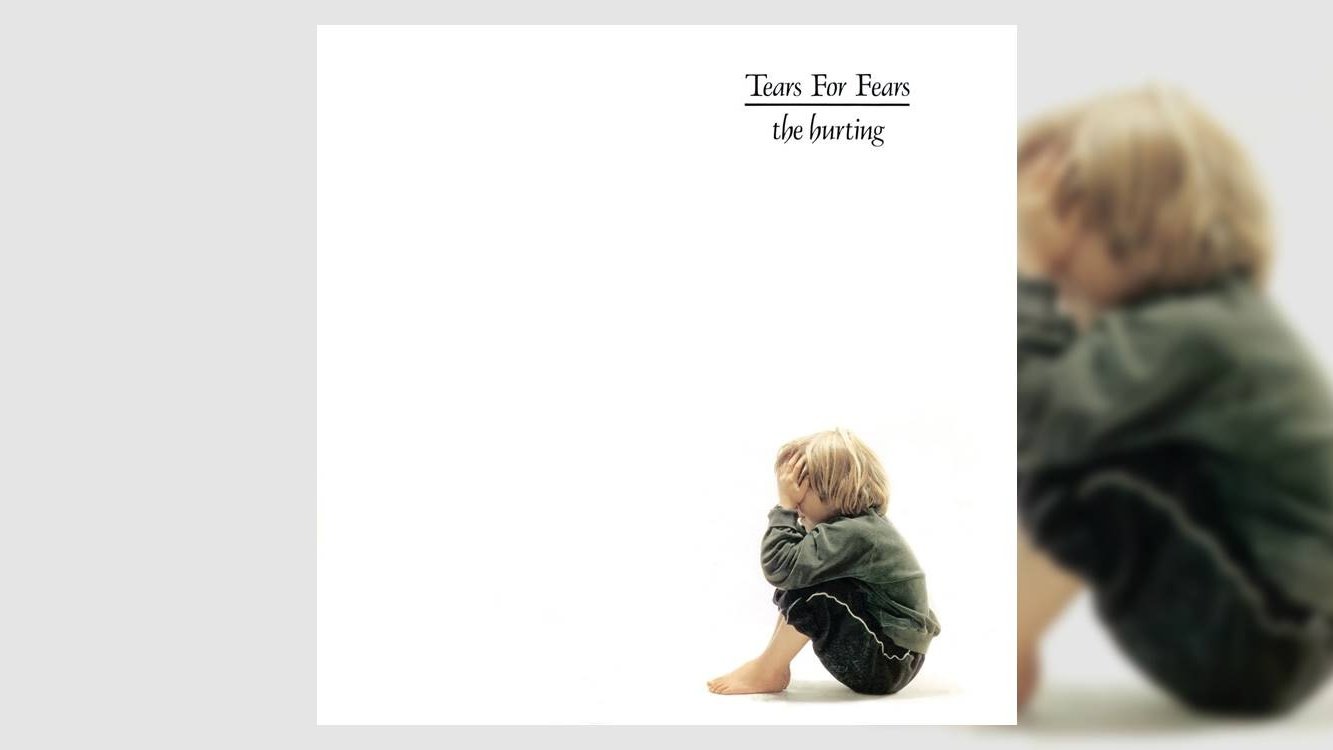Happy 40th Anniversary to Tears For Fears’ debut album The Hurting, originally released March 7, 1983.
The old adage “write what you know” so often applies to young, aspiring musicians, in that what they know is a righteous mix of teenage angst, unhappy family lives, a search for identity and rebellion. As it turns out, this is quite the perfect fit for the largest segment of the record buying public who are dealing with their own “woe is me” moments of teenage life, feelings of isolation, and the weight of growing up.
With their name taken from fringe psychotherapy that focused on childhood trauma, Tears For Fears (comprised of dynamic-dysfunctional-duo Roland Orzabal and Curt Smith) became unlikely synth-pop heroes with the release of their debut effort The Hurting, an album laden with songs recoiling with the unhappiness of childhood.
Stark, bleak, and morose, The Hurting is filled with droning atmospherics, sparse grooves and heavy synths that could easily come across as sterile and clinical, but are injected with heartfelt (if somewhat cliché and romanticized) lyrics and emotional vocals that add a much needed sense of warmth and relatability to the mix.
With many of the songs—such as the album opening title track “The Hurting,” “Suffer the Children,” “Watch Me Bleed,” and “Start of the Breakdown”—acting as touch points for primal therapy, it often feels like you are listening in on a private therapy session or reading through someone’s trauma diary. This raw honesty and exposure to pain makes for a captivating and intimate listening experience, aided masterfully by the double-stacked harmonies of the dueling lead vocals and melodic craft of the songs.
The true genius here is the ability to tap into personal pain, but present it in a way that feels universal and relatable. It makes you as a listener connect with the material in a stronger way than a lot of the new-wave/art-pop that was circulating at the time.
Diving into pain isn’t all doom and gloom though, and whilst the album does have its heavy moments, it also leaves space for a sense of hope or a fleeting glimmer of light in the darkness.
Listen/Watch (Playlist):
Take the hypnotic, percussive smash “Mad World” for instance. As a bleak and nihilist reflection on the monotony of life where “the dreams in which I’m dying are the best I’ve ever had,” Smith doesn’t offer any happy endings, but allows for the driving beat and subtle uplifting chord progression to offer hope or at least a sense of comfort in not being alone in viewing the world this way.
“Pale Shelter” similarly has an upbeat tone to it musically, while the lyrics bemoan being kept at arms’ length affectionately. This contrast keeps the tension within the track, while the sing-a-long chorus and lifting crescendo make it at once hopeless and hopeful.
Whilst the lyrical content of “Change” has been shunted by Orzabal as “just one of those cheap pop lyrics,” it did provide the duo with their biggest worldwide hit from the album. With its looping chime calls and jagging guitar riffs, it the perfect mix of their pop sensibilities (no matter how cheap) and their more experimental musical undertakings, it’s the sole purely optimistic track on the album.
And that’s the beauty of The Hurting. Wedged between bona fide pop gems like ‘”Change” and “Mad World” are bold sonic experiments like “Ideas As Opiates” and “The Prisoner” (and to a lesser extent, “Memories Fade”), giving you a full aural journey through the turmoil, madness, and isolation of despair and anguish. Even Orzabal’s occasionally straining and off-key vocal moments add to the honesty and raw emotion of the album.
As a launching pad for a duo that would indeed go on to rule the world with their next release, The Hurting remains a relevant, brooding montage of despondency, desolation, and ultimately the comfort that we all suffer in some way through our youth. Its potency and poignancy endure 40 years on, perhaps most surprisingly evident by the way many of the album’s hooks and beats have been lifted and sampled by the likes of Kanye West (“Coldest Winter,”) Drake (“Lust for Life,”) M.O.P. (“Crimetime 1-718,”) and most recently, The Weeknd (“Secrets”).
LISTEN:
Editor's note: this anniversary tribute was originally published in 2018 and has since been edited for accuracy and timeliness.

